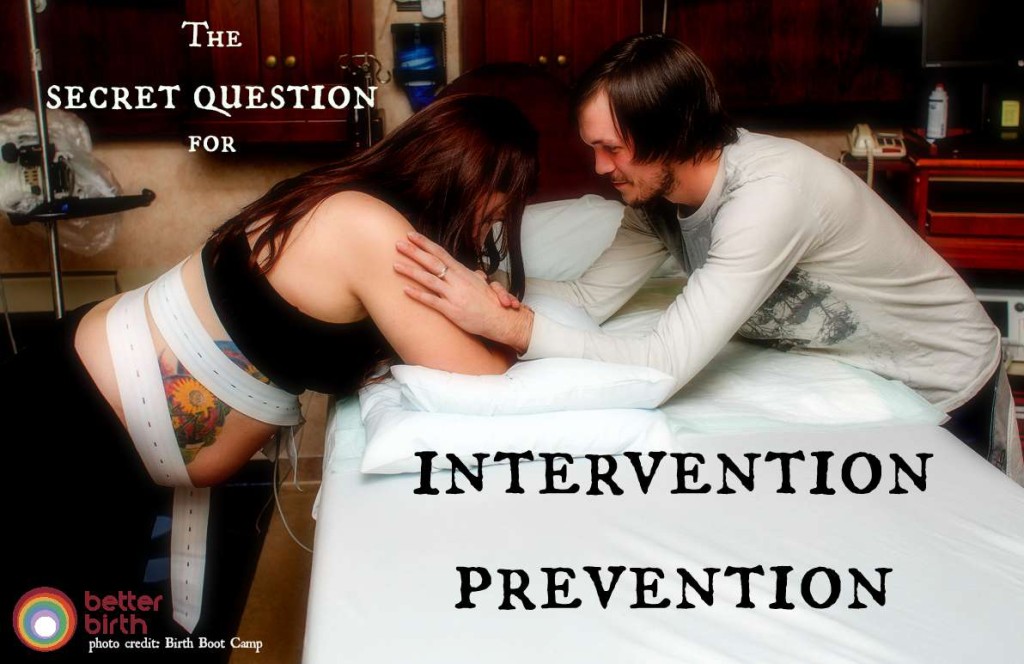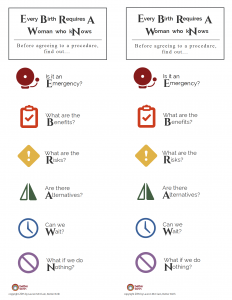
In order to prevent unwanted or unnecessary interventions, you can think and plan ahead of time.
Consider: We Birth the Way We Live
Thinking about how you have faced challenges in the past may help you know how to prepare for birth.
Also Consider: Birth is Part of Our Sexuality
Ask yourself what birth ambiance you need for a private, safe, and undisturbed birth. It will be similar to what you need to relax into sex.
What you can do:
- Make sure you have the right provider and place to assist your birth.
- Watch, read, and/or listen to positive birth stories.
- Discuss your fears ahead of time.
- Develop a tool kit for approaching the intensity of birth.
Your toolkit should include:
- A birth team that supports birth as normal
- A variety of upright positions to choose from
- Some movements, actions, or belly dancing moves that feel good
- Knowledge of how birth works and the choices you may have
- A word or way of thinking about the contractions that doesn’t bring a sense of discomfort (surge, wave, pressure)
- The space and freedom to release emotions in labor: to cry, talk, pray, complain, swear, lean on someone or be alone
Tips for the partner:
- Help the mood in the room (light, sound, smell, other people)
- Kiss, touch, move, lean in, smile, breathe with her
- Ask, “What’s going through your mind?”
(If she doesn’t answer, good. If she does, just let her spill it.)
The secret question to prevent interventions:
You have to be able to make decisions and know ahead of time what you want. Having a caregiver you trust implicitly is the best thing you can do. If you don’t feel comfortable with your provider, switch. If you can’t switch, know that your birth may be impacted negatively by it, and be extra prepared. When an intervention (induction, pitocin, breaking your water, cesarean, electronic fetal monitoring, etc.) is suggested, ask whatever questions you have about it, and then ask for a minute alone. If it’s a true emergency, they won’t give you the option. There will be no discussion.
Some providers give you a hard time or get defensive when you ask for time to talk about it alone. I heard this tip from Debra Pascali-Bonaro about this problem. She encourages couples to say,
“Can we have a moment to pray about it?”
Providers don’t want to step on your religious beliefs and needs, and they are unlikely to say “You don’t need to pray about it. I know better than God.”
So they leave. Whether you intend to pray about it or not…it gets them out. Then you can [pray and] talk about if you really are interested in the intervention at all or discuss your next steps. Works like a charm. Every time.




